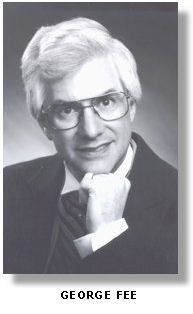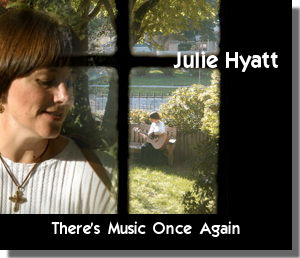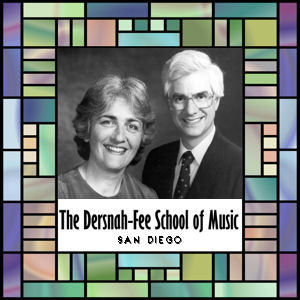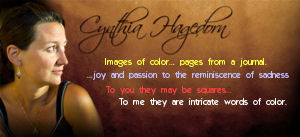
Music Society Chorale & Orchestra
George Fee, pianist
Victor Klimash, conductor
Midland Center for the Arts
May 19, 1995 |
Review published in
The Saginaw News
May 21, 1995 |

| LISTING OF REVIEWS
| GROVER'S HOME PAGE |
|
| |
The Music Society ended its current season in grand style Friday night with an all-Beethoven concert at the Midland Center for the Arts.
Artistic Director Victor Klimash began the festivities with the Consecration of the House Overture, featuring the Music Society's Philharmonia Orchestra. That's the generic title given to the loose amalgam of orchestral regulars and "pick ups" Klimash pulls together for performances requiring orchestra. The group this time was as strong as he has had in recent memory, and they reflected Klimash's celebratory-but-lyrical approach to the overture well.
 Next came Beethoven's uplifting and wonderful 20-minute Choral Fantasy, popularized most recently by Dean Witter television ads, but a work deserving far more attention and performances than its unusual collection of required forces allows. Since it sounds more like a piano concerto, written in fantasia form, with both orchestral and choral accompaniment, it was no wonder that the buzz in the lobby at intermission was about pianist George Fee as the focal point of the performance.
Next came Beethoven's uplifting and wonderful 20-minute Choral Fantasy, popularized most recently by Dean Witter television ads, but a work deserving far more attention and performances than its unusual collection of required forces allows. Since it sounds more like a piano concerto, written in fantasia form, with both orchestral and choral accompaniment, it was no wonder that the buzz in the lobby at intermission was about pianist George Fee as the focal point of the performance.
From the opening solo piano fantasy, through the middle thematic repartee with the orchestra, on to the chorus' entrance (16 minutes into a 20-minute work!), Fee fused pianistic power with subtlety of melodic and ornamental grace into a memorable performance. His ability to sound with musical content the crashing chords of Beethoven's intensity, and then to create silken sculptures and golden tapestries out of the lyrical passages was truly magical.
The performance was not without its problems. The middle strings were a weakness, and at times the orchestra seemed merely to be marking time until the next great crashing entrance.
The six soloists from the Chorale, Shirley Vincent, Jennifer Breneman, Barbara Robinson, Jim Dennis, James Hemeyer, and Albert Neal, were evenly matched and gave lovely readings of the ensemble writing.
After intermission came the grand work of the evening, the powerful and massive Missa Solemnis, composed by Beethoven over a four year period. The 80-minute work, destined for purely concert venues as it is too large in scale for normal liturgical use, was a dramatic coda for the Music Society Chorale's 94-95 season.
Klimash came to the Music Society five years ago already a remarkably gifted and highly musical choral and orchestral conductor, and Friday's concert demonstrated that his time here has given him growth even beyond those levels. In pre-concert publicity, Klimash indicated he felt the Music Society Chorale "equal to the challenge" of this work. "They're ready for it."
In fact, far from appearing daunted by it, the Chorale members' faces and demeanors throughout the Missa Solemnis showed clearly that Klimash had got them to believe in their ability to "own" and deliver the performance, not in a Professor Harold Hill way, but rather from an understanding of the score and of their several and collective abilities. This confidence translated into a broad, powerful, uplifting reading which, while not technically perfect in all places, demonstrated how the chorale has benefitted from the teaching and nurturing given to it by Klimash.
Starting with Beethoven's bold demand for mercy in the Kyrie, through the Gloria, which explodes off the pages of the score, into the reverential depths of the Sanctus and Benedictus, and emerging out through the complex Angus Dei, the Chorale traversed styles, temperaments, and awkward vocal writing in fine fashion.
The four vocal soloists were a strong addition to the performance. Louise Speck Swales' clear, pure soprano soared in angelic fashion through the difficulties of Beethoven's score. Soaring marvelously throughout was Robert Johnson, whose tenor voice was almost the perfect instrument for the Missa Solemnis. Mezzo Patricia Etienne and bass Roger Havranek shared a warmth and richness of tone, with Havranek anchoring the quartet in fine Maurice Bevan fashion (a high compliment).
Concertmaster Roderick Bieber, featured in the sustained violin solo in the Benedictus, provided a sweet and entreating tone and a lyricism worthy of this ethereal writing. The orchestra seemed more at ease with the larger, less exposed writing of the Mass than they had with the Choral Fantasy, and some fine sectional and solo playing was heard.
It was a rewarding, full evening of powerful music, an excellent season valediction to which the audience gave warm applause.

| |
|

RETURN TO TOP
|











